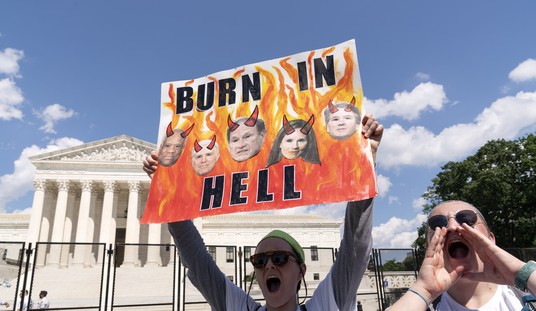Although man is a political animal, most doctors like to believe that they are not primarily motivated by politics. But the difficulty, or impossibility, of avoiding politics altogether was illustrated by a recent editorial in the New England Journal of Medicine about the decision of Health and Human Services Secretary Kathleen Sebelius not to allow the over-the-counter sale of the morning-after contraceptive pill to women and girls of all ages, only to those over 17 years. Girls under that age will need a prescription.
This was against the recommendation of the FDA’s committee that the contraceptive should be available over-the-counter to everyone of whatever age, with no questions asked. The editorial accused the secretary of playing politics and of disregarding science.
That the secretary was making a political decision is certain; what is not certain is that she or anyone else could make a non-political decision, for facts do not compel policies as if, once enunciated, there was no choice to be made — though, of course, facts (one may hope) do affect policy decisions.
“First, the facts,” says the editorial magisterially, if a little condescendingly, as if bringing enlightenment to the benighted. But, as the on-line commentary that the editorial provoked demonstrated, facts do not always speak for themselves, nor is there universal agreement about which facts are relevant, conclusive, or even best-described.
“The best available evidence,” we are told, “indicates that it [the morning-after pill] prevents pregnancy largely by delaying or preventing ovulation, but prevention of implantation cannot be ruled out. [It] does not cause abortion…” But, according to a doctor from Fredericksburg, Virginia, “since life begins at conception, abortion involves the termination of the embryo from the moment of conception”; and therefore, if he is right, the morning-after-pill acts, sometimes at least, as an abortiofacient. And this would be so irrespective of one’s attitude to abortion.
The editorial states that the drug is safe, but a retired primary care physician, a self-proclaimed fan of evidence-based medicine, asks “what is the evidence that 10 or 11 year olds can safely use this relatively high dose?” He points out that “there aren’t that many pregnancies in that age group to have provided evidence that the medicine is truly safe for them.”
The editorial is worried that making the drug available over-the-counter to 17 years olds and over will penalise the poorest groups, since they will not have the kind of documents that prove their age. In any case, the pill costs $50, and another physician worried that the people who most needed the pill would not be able to afford it in any case. Other poor people might buy it unnecessarily, impoverishing themselves further.
Furthermore, wrote a doctor from France, despite relatively easy access to the pill in his country, and its cheapness in the rest of Europe, “unintended pregnancies among adolescents have reached alarming rates,” suggesting that there is “the need of a more comprehensive strategy in this area of preventive care.”
A doctor from Italy objected to the whole idea of preventive care because “pregnancy is not a disease.” Here, perhaps, it is worth mentioning that Italy has an enlightened law about adolescent sexuality, regarding sex between adolescents in a different and more favorable light than that between adolescents and adults.
The idea of handing out morning-after pills to 10 and 11 year olds with no questions asked seems callous and unfeeling. On the other hand, so does forcing them to go through with pregnancy or abortion because of delayed access to the pill. People can disagree on the matter without being moral monsters.








Join the conversation as a VIP Member